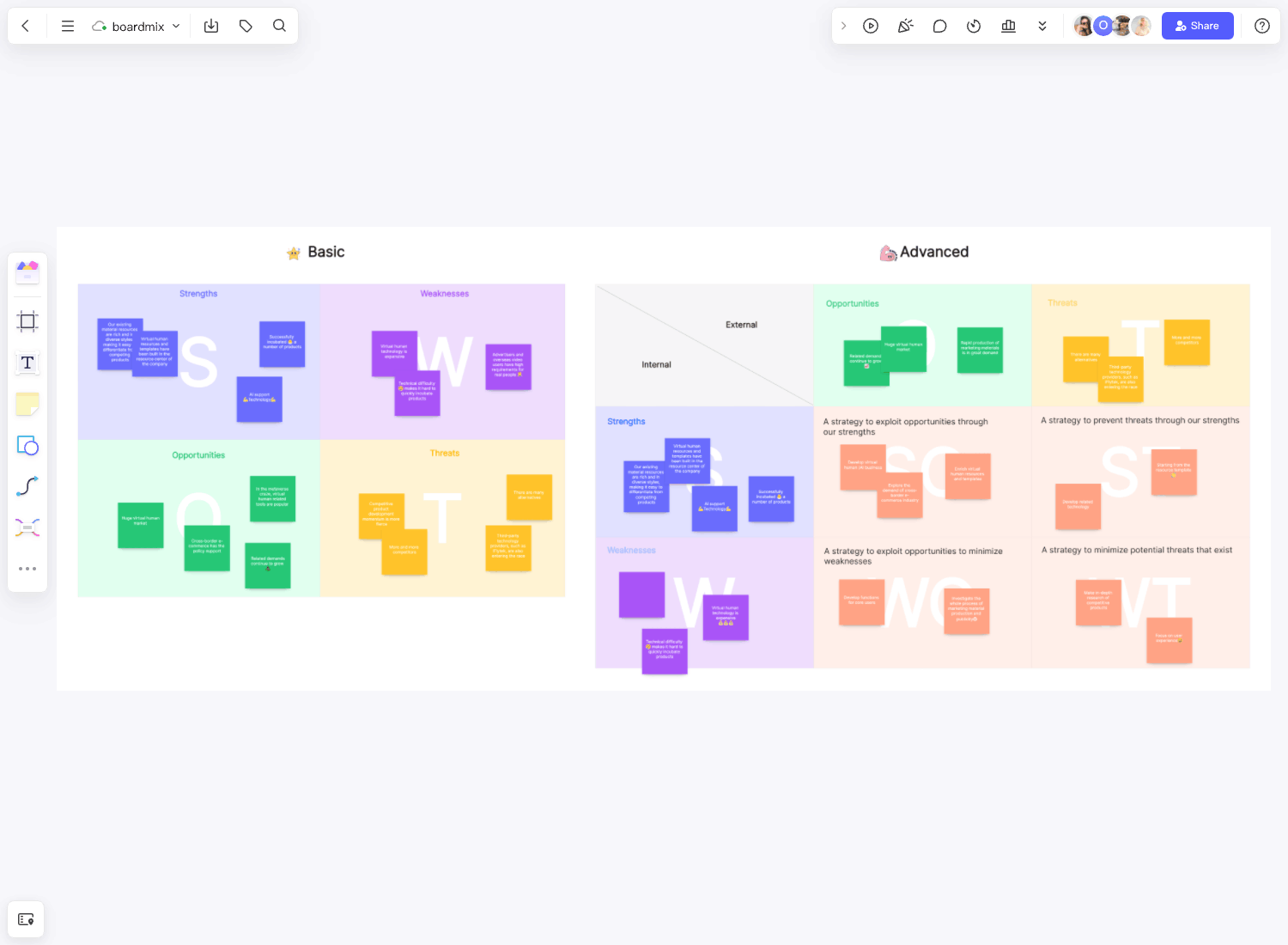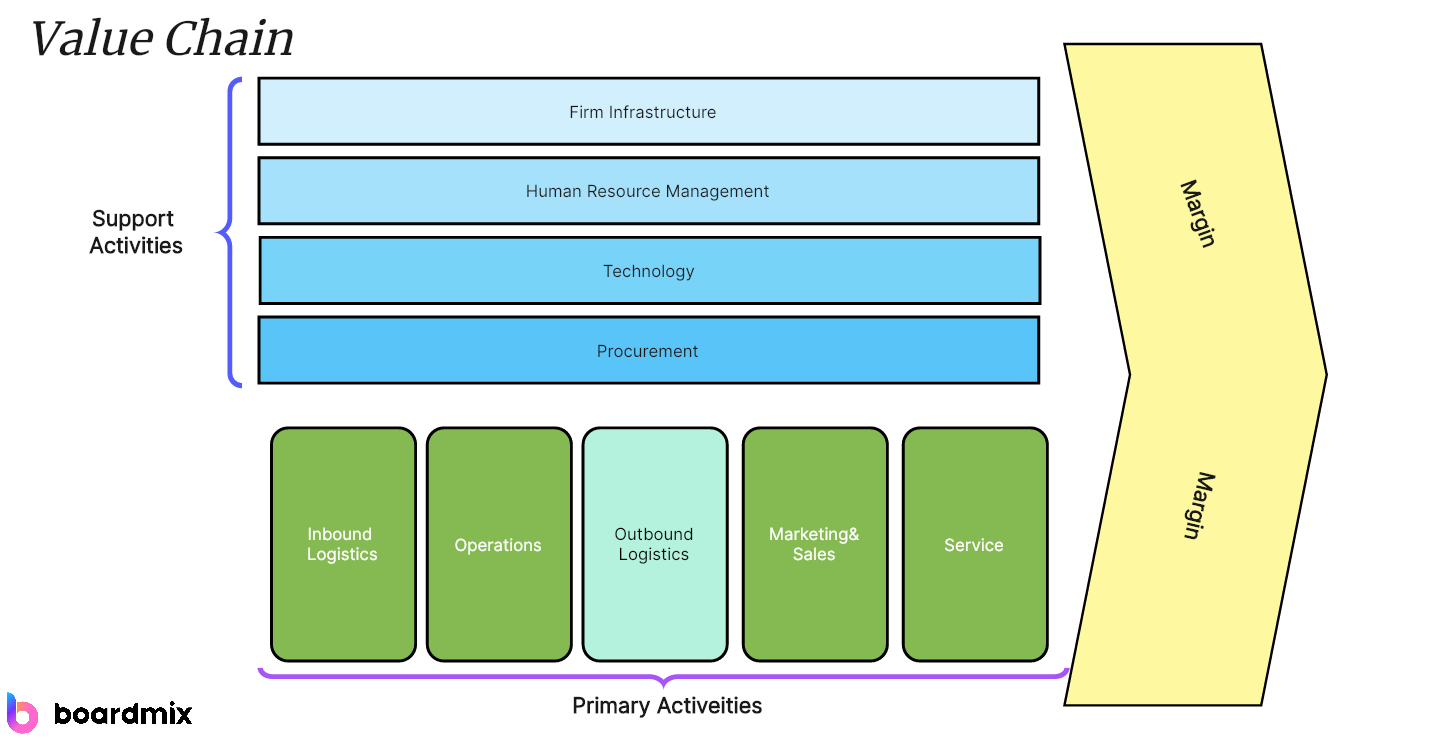Walmart, a dominant force in the retail arena, has consistently adapted to the evolving landscape. By conducting a comprehensive Walmart PESTLE analysis, we can uncover the myriad external factors shaping Walmart's decisions. Let's embark on this analytical journey.
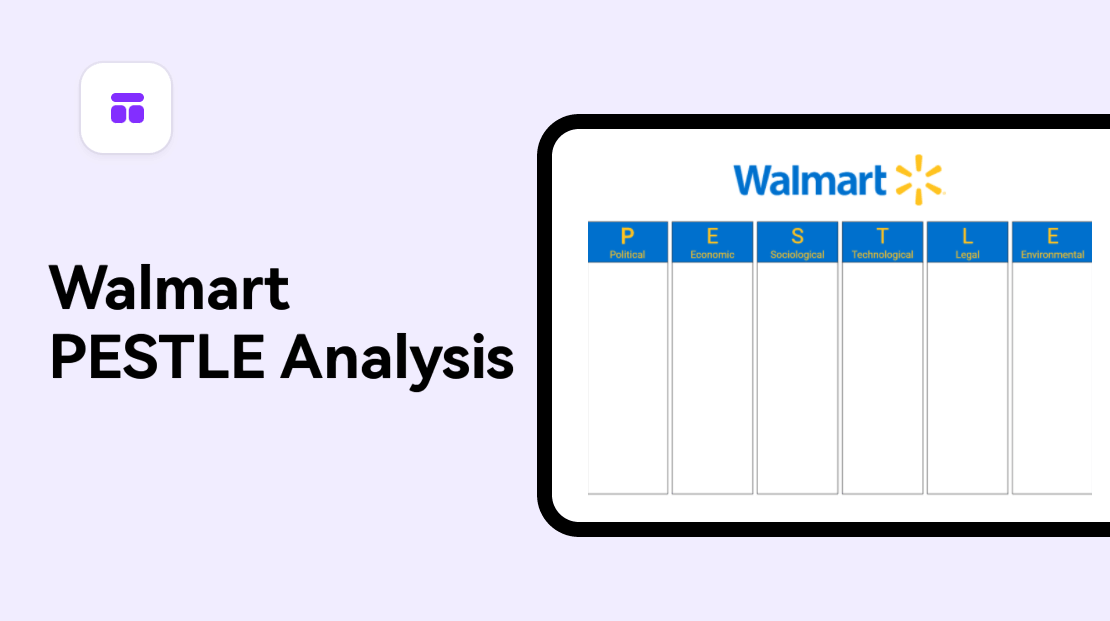
What Is the PESTLE Analysis
PESTLE analysis stands for Political, Economic, Social, Technological, Legal, and Environmental factors. It is a strategic tool employed by businesses to evaluate and monitor the macro-environmental factors that might affect their operations.
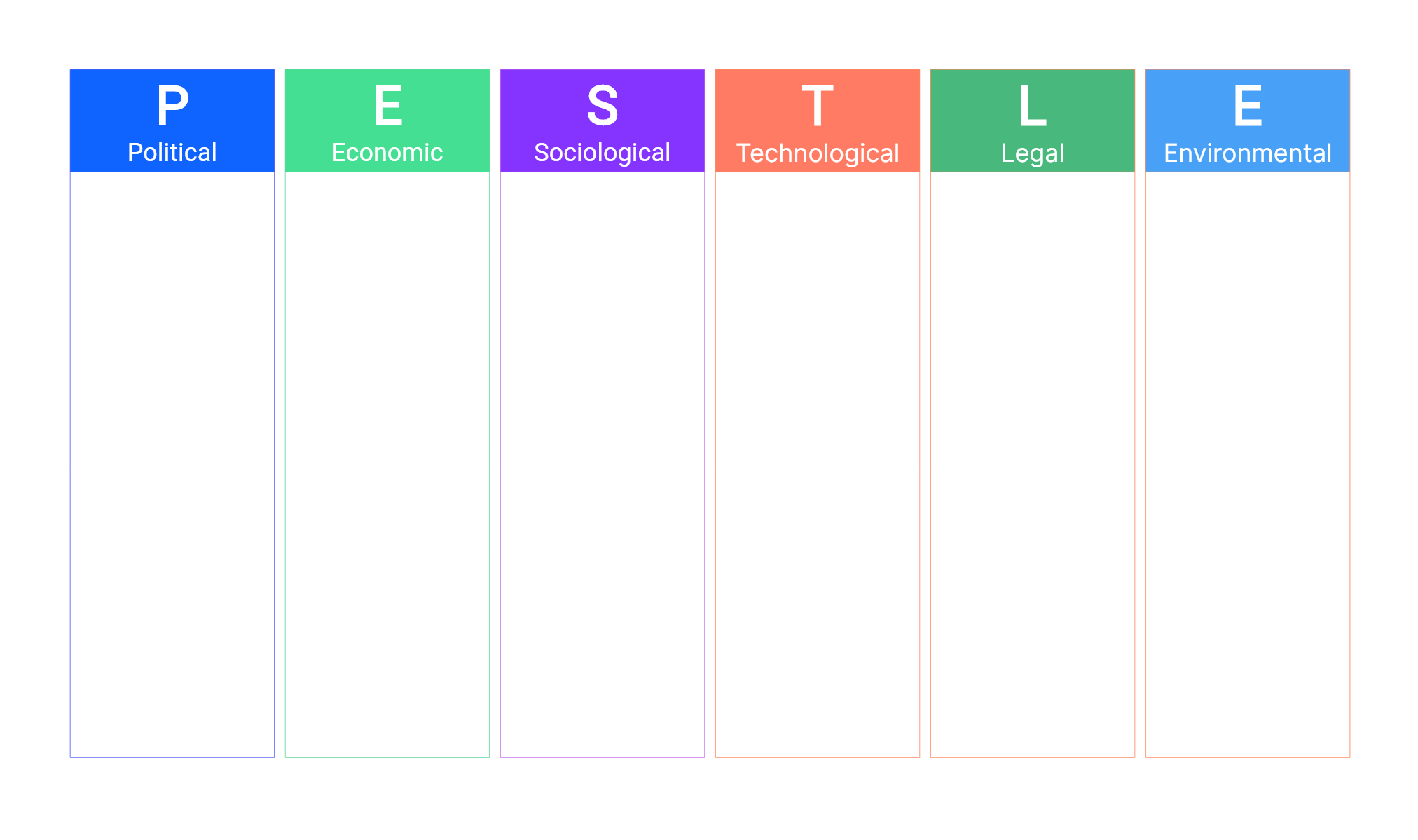
- Political: This dimension delves into how governmental decisions, trade policies, and international relations might influence an organization. For businesses operating globally, like Walmart, political stability across borders is paramount.
- Economic: Economic conditions can make or break a business. This factor assesses global economic health, exchange rates, inflation rates, and overall economic growth or recession, allowing businesses to foresee potential financial hurdles or opportunities.
- Social: Here, we explore society's attitudes, cultural nuances, and demographics. Social shifts, evolving lifestyles, and changing population dynamics can reshape consumer behavior and demand patterns.
- Technological: Rapid technological advancements mean that businesses must perpetually adapt. From e-commerce growth and AI to automation and digital transformation, technological factors determine operational efficiency and customer interaction dynamics.
- Legal: Operating within the law is non-negotiable. This dimension encompasses everything from employment laws and competition regulations to health and safety mandates and consumer rights. For global entities, understanding legal nuances across nations becomes pivotal.
- Environmental: The world is increasingly gravitating towards sustainability. Factors such as climate change, sustainable resource use, and waste management can dictate a company's public image and operational practices.
Basic Info of Walmart
Walmart's story began in 1962 when Sam Walton opened the first store in Rogers, Arkansas. From those modest beginnings, the brand burgeoned into an international retail juggernaut. Today, Walmart boasts over 11,000 stores spread across 27 countries.

The company's vast product array spans from groceries, clothing, electronics, to home furnishings. Furthermore, Walmart has diversified into various sectors, including e-commerce with the acquisition of platforms like Jet.com.
However, the journey hasn't been without its challenges. Walmart's expansion has been met with both applause for its affordability and criticism concerning labor practices and local business impacts. As the retail titan continually evolves, understanding its foundations is crucial for an accurate Walmart PESTLE analysis.
Walmart PESTLE Analysis
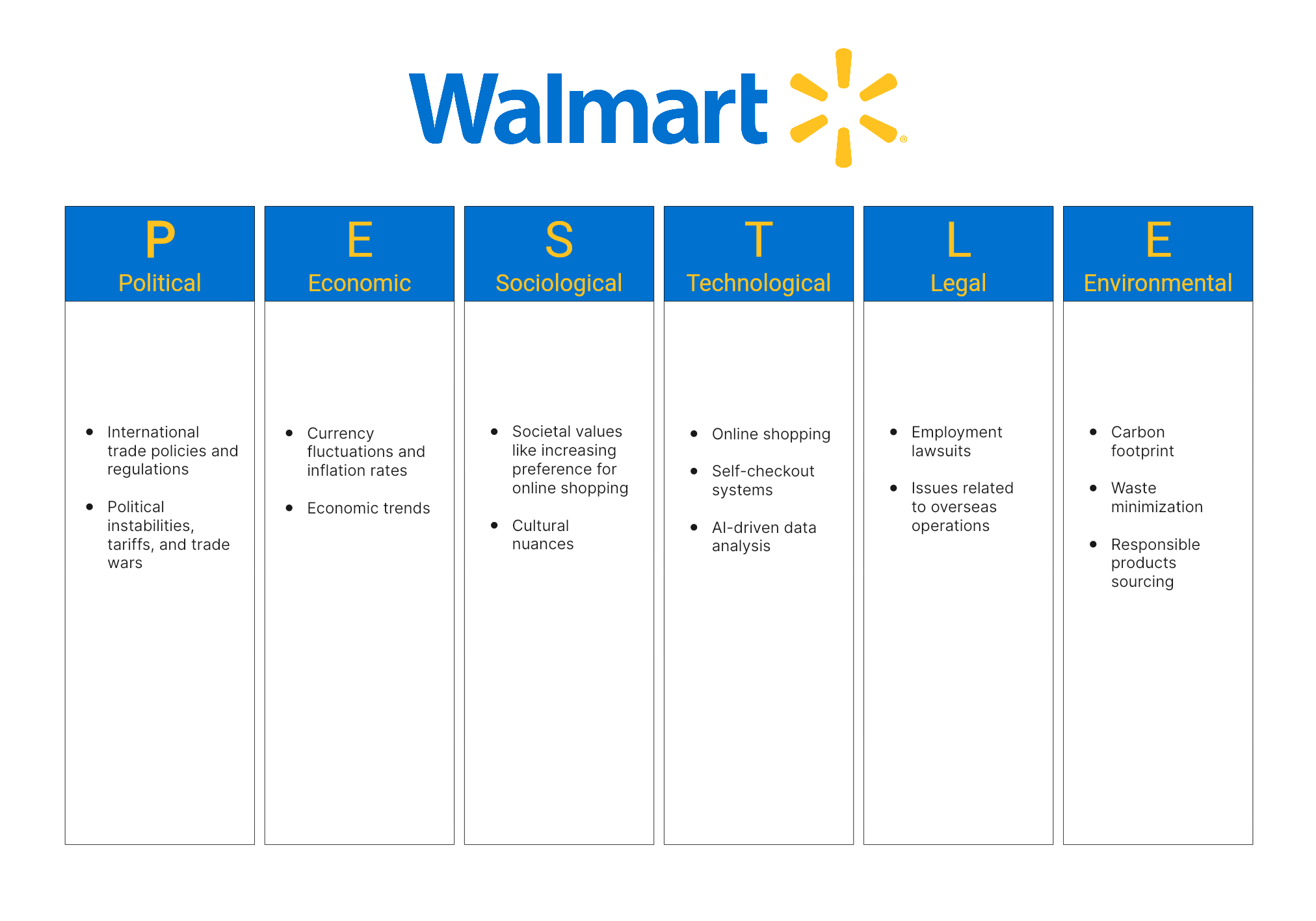
- Political: Walmart's vast supply chain means it's deeply affected by international trade policies and regulations. Political instabilities, tariffs, and trade wars can hike costs and disrupt supplies.
- Economic: Economic downturns can stifle consumer spending, but Walmart's "Every Day Low Prices" strategy has often seen a sales uptick during recessions. However, currency fluctuations and inflation rates remain concerns in its international markets.
- Social: As societal values evolve, Walmart adjusts its offerings. Their focus on e-commerce and home delivery services reflects the increasing preference for online shopping. Furthermore, Walmart must understand cultural nuances in its international markets to tailor its products accordingly.
- Technological: Walmart invests heavily in tech. Their foray into online shopping, self-checkout systems, and AI-driven data analysis highlights their commitment to leveraging technology to improve customer experiences and operational efficiency.
- Legal: Walmart grapples with numerous legal challenges, from employment lawsuits to issues related to overseas operations. Staying compliant is crucial to avoid hefty penalties and reputational damage.
- Environmental: Walmart is making strides towards sustainability, launching initiatives to reduce its carbon footprint, minimize waste, and source products responsibly.
Insights from the Walmart PESTLE Analysis
The Walmart PESTLE analysis provides a panoramic view of the myriad forces shaping Walmart's trajectory. Drawing from the extensive examination of each PESTLE factor, we can infer several profound insights regarding Walmart's operations and strategic positioning.
- Adaptive Strategy is Crucial: Walmart’s continued success underscores the importance of a nimble strategy that responds effectively to external pressures. From political tensions affecting trade routes to economic downturns influencing consumer spending patterns, the retail giant has consistently shown its adaptability. For instance, when faced with an economic slump, Walmart capitalizes on its “Every Day Low Prices” philosophy, effectively catering to budget-conscious consumers.
- Technological Forwardness as a Competitive Edge: As technology permeates every facet of business, Walmart's significant investment in digital transformations, e-commerce platforms, and AI-driven tools speaks to its commitment to staying ahead. By integrating technology seamlessly into both their operations and customer experience, they've managed to hold their own against e-commerce giants and startups alike.
- Societal Values Drive Business Decisions: The changing social landscape, with its evolving values and preferences, has seen Walmart adjust its sails multiple times. Their foray into organic products, sustainable offerings, and community engagement initiatives reflects a deeper understanding of the modern consumer who is more conscious, informed, and demanding than ever.
- Legal & Ethical Operations as a Reputation Pillar: While Walmart has faced its share of legal challenges over the years, each instance serves as a lesson in the importance of rigorous compliance. Their efforts to streamline operations, maintain transparency, and champion ethical business practices are pivotal in maintaining their brand reputation and trust amongst stakeholders.
- Embracing Sustainability: One of the more recent, yet significant shifts in Walmart's strategy is its approach to sustainability. As environmental factors take center stage globally, Walmart has launched various initiatives aiming for reduced carbon footprints, waste minimization, and responsible sourcing. Their commitment isn't just about public image; it's also about future-proofing the business against potential environmental regulations and tapping into the burgeoning market of eco-conscious consumers.
- Global Operations Need Localized Strategies: One of the standout insights from the analysis is that while Walmart is a global brand, its success in various markets hinges on its ability to localize. Be it adapting to cultural nuances in product offerings or understanding regional political and economic climates, Walmart's localized strategies underpin its global success.
Key Takeaway: A One-stop Tool for PESTLE Analysis
The Walmart pestle analysis is an indispensable tool that offers a holistic view of the macro-environmental factors influencing a business. By encompassing Political, Economic, Social, Technological, Legal, and Environmental facets, it empowers organizations to make informed decisions, anticipate challenges, and identify opportunities, ensuring strategic agility in an ever-evolving global landscape.
To do a comprehensive PESTLE analysis of a company, you can take use of some efficiency tools, one of which is Boardmix. Boardmix is a versatile online whiteboard tool that provides various templates for you to get started quickly on data research and analysis. Besides, you and all other stakeholders can work together in real time to polish the PESTLE analysis to perfection. Just sign up and give it a nice try!







